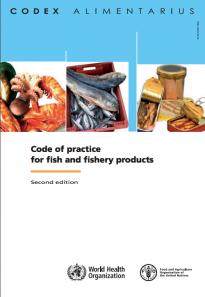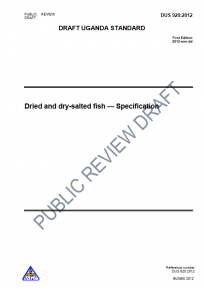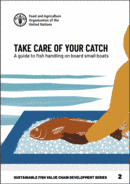Regulatory Environment for Artisanal Fish Product Storage
Regulatory authorities should be equipped to implement national food law –which will often entail extension to educate processors and traders, advisory services, and enforcement – and establish standards. Food law should lay out the requirements for good fish storage practices and food safety requirements that minimizes food loss and waste (FLW). Food standards should encourage the uptake of good storage practice and be made available in a format understandable by traders and processors.
The Codex Code of Practice For Fish And Fishery Products describes storage as a process in which products are kept under conditions to assure their safety and quality. Particular guidance is given in Sections 3 and 6 of the Standard for Smoked Fish, Smoke-Flavoured Fish and Smoke-Dried Fish.
Encouraging the uptake of improved technology and practices can be promoted at the local level by the development of bylaws which make it a requirement that well designed storage facilities and associated hygienic practices are used.
Key Publications
Code of Practice for Fish and Fishery Products Codes of practice and guidelines designed to help meet standards and comply with legislation (e.g the Codex Alimentarius Code of Practice for Fish and Fishery Products). | |
Describes best practices for the production of a variety of processed fish products. Packaging and storage are discussed. | |
Dried and Dry Salted Fish - Specification
This standard specifies the requirements and the methods of sampling and test for various types of dried and dry-salted fish intended for human consumption. |
More Resources
More Resources
31 October 2023














